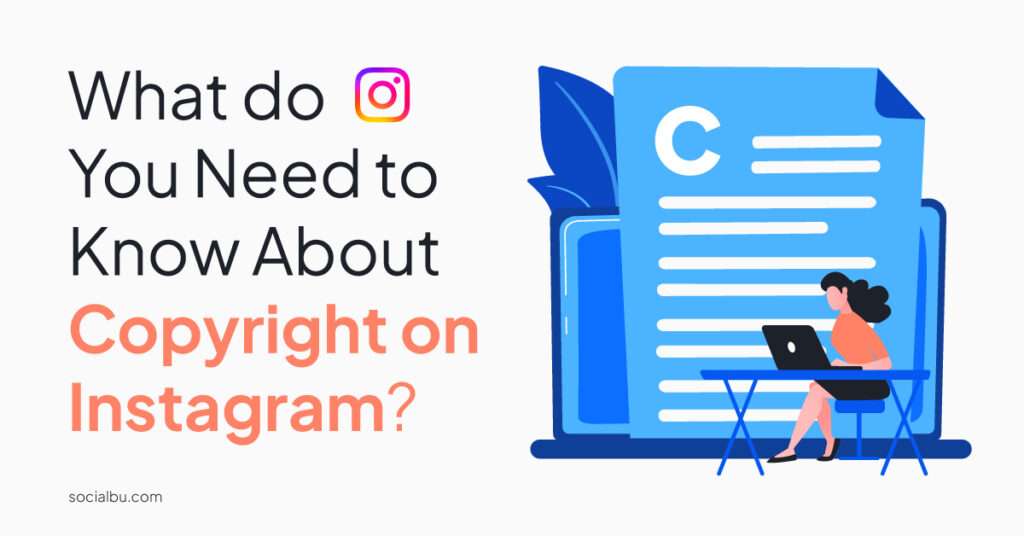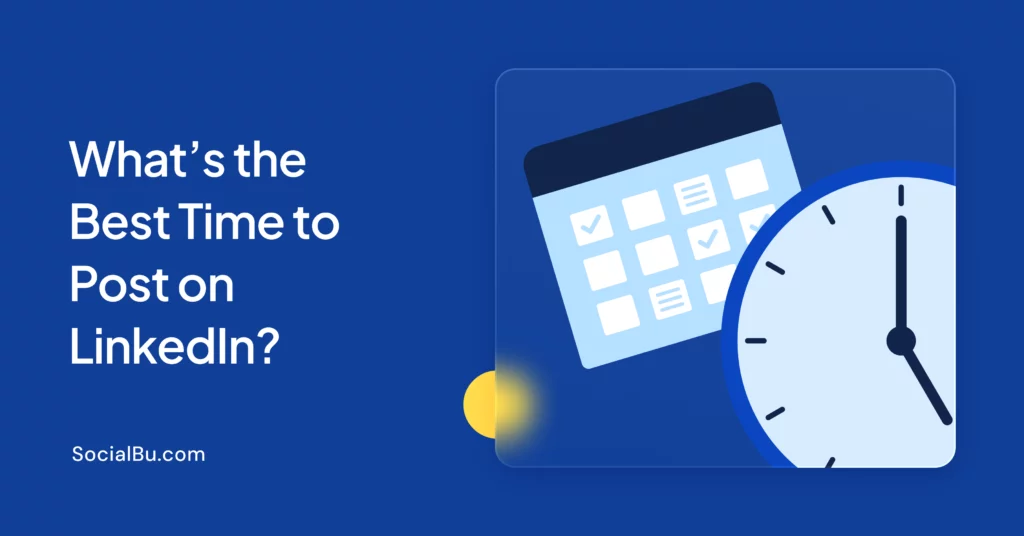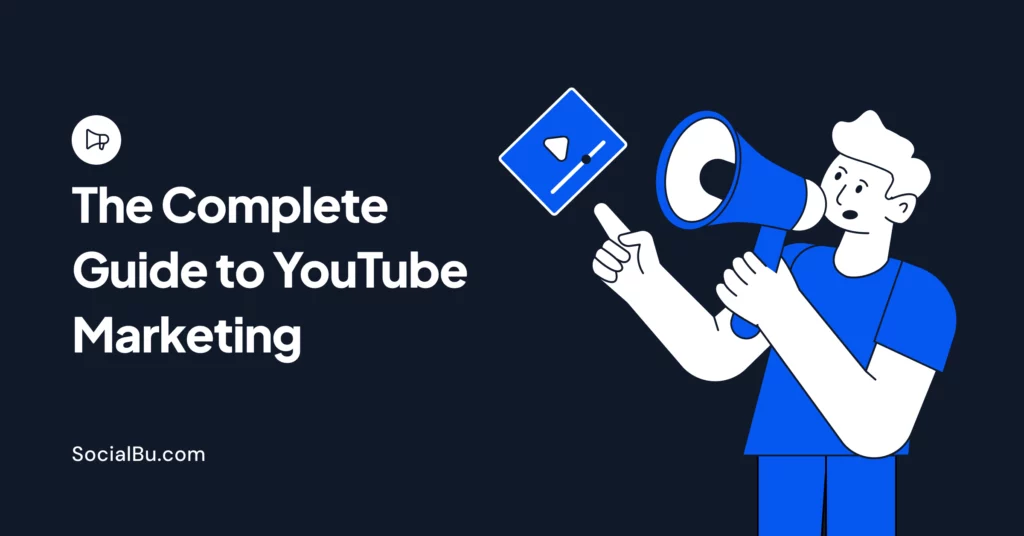With over 2.35 billion active users monthly, Instagram stands tall as one of the most popular social networking platforms that allows you to share photos, reels, stories, and videos with your friends and followers worldwide. One critical aspect of exploring this creative realm must be remembered: copyright on Instagram.
Whether you are a regular user or a content creator showcasing your talent and insights, knowing about it is essential. Let’s go over the fundamentals of copyright law, Instagram’s terms of service, and how to handle the complexities of sharing, reposting, and producing on this visually driven site.
The Ancient Pillars of Copyright Law
Copyright’s mystic roots stretch back hundreds of years to when handwritten books were the lone creative outlet. This powerful protection jumped from a simple desire — to grant inventive minds control over their wondrous works.

While technologies race forward quickly, copyright’s core purpose remains unchanged. To bestow creators with exclusive rights and safeguard their ability to share their gifts with the world. A noble cause!
Copyright awakens like a watchful protector when your fingers tap that camera icon or type a clever caption. Copyright applies to videos, illustrations, memes, stories, and any content you conjure up—a mighty force shielding your Instagram accomplishments.
Instagram’s Terms of Service and Copyright
Instagram, a bustling hub of creativity and self-expression, operates under rules and regulations that every user should know. Understanding these terms of service is a legal obligation and a crucial step in maintaining a positive and respectful presence on the platform.
Granting a License to Instagram
- Instagram receives a license automatically when you publish anything to the service.
- Instagram may use, display, and distribute your material as part of its operations under the terms of this agreement.
- Importantly, your copyright is unaffected by this. Although Instagram has been given some permissions, you still maintain ownership.
Scope of the License
- Remember the license parameters you provide. To be sure that it complies with your sharing objectives, be aware of how Instagram may utilize your content.
- This license makes The platform’s smooth operation possible, making it possible to use functions like sharing, embedding, and content promotion.
Reposting and Sharing on Instagram
Instagram’s terms specifically address the issue of copyright infringement to create a welcoming and imaginative community. Law is essential, but so is respecting other people’s intellectual property.

Seek Permission or Give Proper Credit
- Permission Matters: Before recreating or distributing anything that isn’t your own, always get specific permission. Communication with the artist directly is a respectable habit.
- Credit Where Due: If permission is granted, ensure that due credit is given in your description. To acknowledge the original creator’s work, tag them.
The Bedrock of Collaboration
Respect for intellectual property serves as the bedrock of a collaborative and creative community. Here’s why it matters:
- Fostering Trust: Respecting others’ rights fosters trust and goodwill within the community.
- Encouraging Collaboration: A culture of respect encourages collaboration, with creators feeling secure in sharing their work on the platform.
In essence, Instagram’s terms of service regarding copyright are legal formalities and guidelines for building a community where creativity flourishes without compromising mutual respect.
Using Music on Instagram
Using copyrighted songs on Instagram can be tempting to complement visual posts. However, taking music without permission can violate copyright law and harm the relationship between creators. It’s essential to follow proper protocols around using others’ music to avoid legal issues.
Options include licensing songs legally, using music released under Creative Commons, or creating original compositions. With some care taken, it’s possible to find musical pairings for Instagram posts that are both impactful and respectful to other artists.
The convenient Instagram music sticker offers a pre-approved selection, ideal for timely stories. To ensure greater versatility, ensure that external tunes comply with copyright principles and the terms outlined in the creators’ agreement application form.
The trademark assignment agreement provides a template that clearly outlines ownership and usage rights of creative work like music between two parties. For Instagram users looking to legally use others’ music, establishing an agreement based on this template is one way to ensure proper permissions are granted.
UGC (User-Generated Content) and Brands
Brands and influencers flock to Instagram, eager to harness its bountiful marketing powers. They often beckon users to create branded posts and engage in sponsored campaigns.

Before using copyrighted material, you must fully understand your legal rights and obligations by thoroughly reviewing any licensing agreement.
Marketers may reuse your submissions widely to push products. Define your boundaries clearly from the start. Carry responsibility, too — obtaining full consent to utilize user-generated content in their strategies. They must navigate carefully to maintain community trust.
Copyright Infringement Consequences on Instagram
Instagram takes copyright infringement seriously, and consequences can range from content removal to account suspension. Understanding the potential repercussions is vital for maintaining a positive and lawful online presence.
Sometimes, conflict arises amidst the digital world of Instagram. You gaze in horror as your photo is reposted without credit, or your meme circulates now with another’s name attached.
If your copyrighted material is used without authorization, consider filing a DMCA takedown notice. It requests Instagram remove the infringing post to address the violation.
A takedown notice can be an effective means to have improper usage of your work discontinued and your legal rights upheld professionally.
Digital Millennium Copyright Act (DMCA)
Before engaging the DMCA authorities, attempt a diplomatic parley first. Many copyright disputes arise from simple misunderstandings rather than malicious intent.
Reach out kindly to the perceived transgressor. Clarity may arise from a place of empathy and compassion. Perhaps negotiable compromises can even be reached! If no accord can be struck, gently report the violation to Instagram proper.
How to Handle Copyright Disputes on Instagram
Navigating copyright disputes on Instagram requires a strategic and informed approach. Knowing your rights, understanding the platform’s procedures, and engaging in open communication can be vital elements in resolving such conflicts.
For example, upon receiving a cease and desist letter, it’s crucial to understand your next steps. Not all allegations of infringement require the end of your online creativity or sharing. Knowing how to craft an appropriate response to a cease and desist letter can help you negotiate terms that safeguard your rights while respecting others’ copyrights.
Try to Resolve Directly
Many disagreements are the result of misconceptions. Communicate with the other party openly and politely to explain your position, seek remedies, or even achieve agreements on using the content.
Use Instagram’s Reporting Tools
If open conversation fails and you believe your intellectual property is being violated, use Instagram’s reporting mechanisms.
Outline the infringement in detail through their in-app reporting tool, offering proof and specifics to support your claim. Instagram’s support staff will then investigate.
Step-by-Step Reporting Process
- Go to the infringing post and click the three dots icon.
- Select “Report” and choose “Intellectual property violation.”
- Identify which content is yours and explain how it is being misused without permission.
- Upload any supporting documents like copyright registration.
- Instagram will review and notify you of the outcome. They may remove the content or deactivate the account if they agree infringement occurred.
- Consider submitting a DMCA takedown notice if no action is taken. Consult Instagram’s help center or an attorney on proper procedures.
- Keep records of all disputes and communications in case further legal action is required later.
Conclusion
Once again, because Instagram is a fun and creative place, that does not mean there are no hard-and-fast rules. It is the same for consequences, of which there can be quite a few.
Instead of taking your chances, we recommend you take the above guidelines to heart. They will help you protect your work and yourself, as well as ensure others get their due credit as well.








1 thought on “Things You Need to Know About Copyright on Instagram”
Interesting article! The complexities of copyright on a visually driven platform like Instagram always arise at the wrong time and are very difficult to understand even for experienced SMMs.